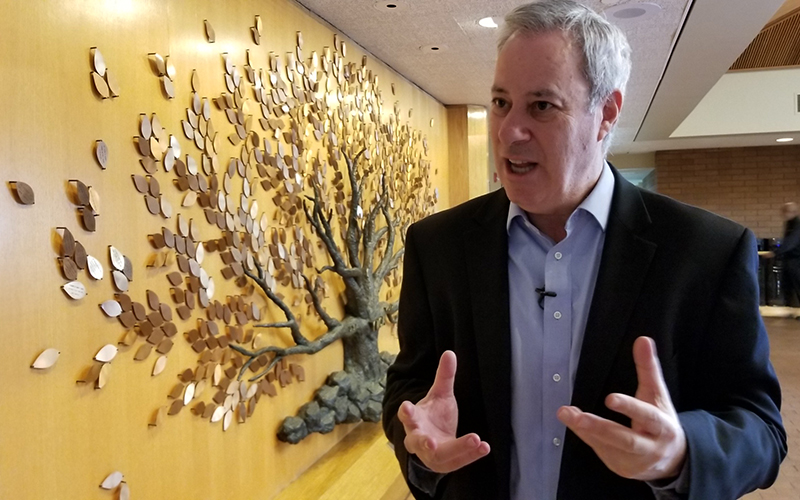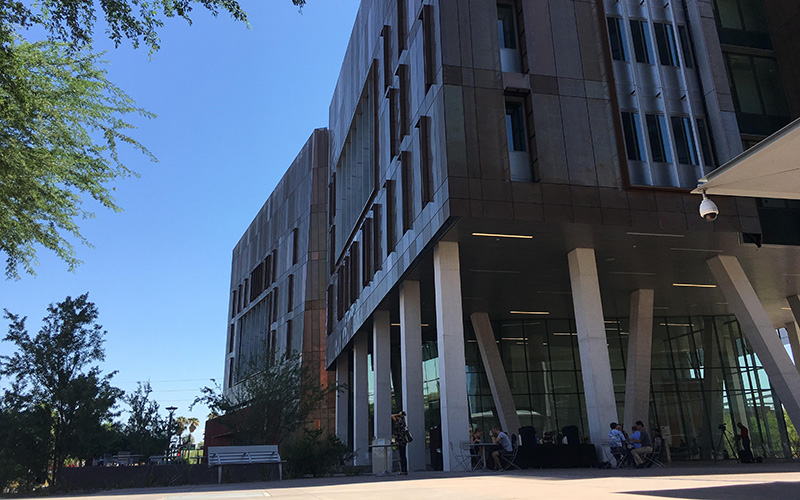PHOENIX – Researchers are turning to tech to help figure out why some people live long lives without brain problems while Alzheimer’s and similar forms of dementia rob others of their ability to form memories and perform daily tasks that once were routine.
The Translational Genomics Research Institute, known as TGen, founded and conducts MindCrowd, an online research project to identify patterns in healthy aging – and eventually prevent dementia. So far, results have shown differences between men and women and among people with a college education.
The project, which has screened about 125,000 people with its 10-minute online test since it started in 2013, has identified several factors that are correlated with memory function, according to Matthew Huentelman, founder and principal researcher for MindCrowd.
“By better understanding how the brain ages, especially with regards to how learning and memory work during the aging process, we think we can learn how we might prevent Alzheimer’s disease,” Huentelman said Wednesday at the Arizona Alzheimer’s Consortium.
MindCrowd’s online screening consists of an attention test of reaction time and a memory test involving word association.
Getting people to participate in the test took some doing, Huentelman said, but the effort is gaining momentum.
“We think it’s grown incredibly over the past five years, and the goal here now is to have it be a little more explosive, a little more exponential, so we can get to that million much quicker than we got to the first 100,000.”
The project’s goal is to screen 1 million cognitively healthy people around the world. The test is available in English, Spanish and Mandarin.
Huentelman said he hopes to identify new factors that impact healthy aging – researchers already acknowledge the role of healthy diet, exercise, social activity and good sleep in reducing dementia risk.
MindCrowd’s screenings have identified some patterns in human memory, including confirmation of a long-held understanding that memory declines as people age.
Huentelman said the data also show men have faster average reaction times than women, but that women, on average, score higher on the memory portion of the test.
MindCrowd’s data also suggests that men with heart disease and a family history of dementia are less likely to be affected by their familial connection to dementia than either women with heart disease or other people without heart disease.
Huentelman said more research is needed to identify the reason for the improved outcomes for men with heart disease.
MindCrowd’s data also suggests that educational achievement levels correlate with memory function – on average people who went to college or graduate school score higher on the test than those who may have only finished high school.
Eric Reiman, the director of the Arizona Alzheimer’s Consortium, said technology offers a unique avenue for collecting information for Alzheimer’s and other cognitive research.
“The advantage of this approach in research is that it might give us greater power to detect changes over time and the effects of treatment, ” Reiman said. “They also have the promise to give us information that could inform a person’s prognosis, how they will do over time and possibly help to inform the care they receive.”
Reiman said he would like to see digital approaches implemented into longitudinal studies, but tech-related research can present challenges.
“Imagine using a technology to track changes over time and then the company that made that technology changes it.”
Despite potential challenges, Reiman said he expects increased funding for Alzheimer’s research, which has lagged far behind such diseases as cancer, has increased significantly in the past several years.
Suzanne Swann, who has taken care of her friend, Bob Brickley, for two years, said Wednesday she likely will take the MindCrowd test. Brickley, 90, who has Alzheimer’s, can’t be left alone without getting lost and has difficulty recalling information.
Swann asked if Brickley remembered what he ate for breakfast. He could not.
“I know they are working on ways of stopping it from getting worse and they’re also looking for ways to reverse it,” said Swann, 75. “If either one helps him, that’s a win-win for everybody.”
Deaths from Alzheimer’s in the U.S.increased 123 percent from 2000 to 2015, according to the Alzheimer’s Association.
Connect with us on Facebook.

